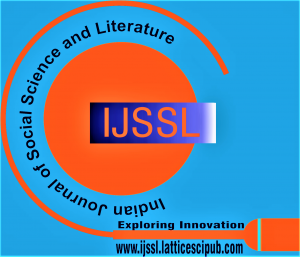![]()
Gender Responsive Budgeting at Union Parishad: Current Status, Potentials and Challenges
Mostafa Ferdous Hassan
Mostafa Ferdous Hassan, Research and Knowledge Management Officer, The Asia Foundation, Dhaka, Bangladesh.
Manuscript received on 02 June 2022 | Revised Manuscript received on 12 June 2022 | Manuscript Accepted on 15 September 2022 | Manuscript published on 30 September 2022 | PP: 1-10 | Volume-2 Issue-1, September 2022. | Retrieval Number: 100.1/ijssl.E1023091522 | DOI: 10.54105/ijssl.E1023.091522
Open Access | Ethics and Policies | Cite | Mendeley | Indexing and Abstracting
© The Authors. Published by Lattice Science Publication (LSP). This is an open-access article under the CC-BY-NC-ND license (http://creativecommons.org/licenses/by-nc-nd/4.0/)
Abstract: While the idea of gender-responsive budgeting has piqued the imagination of individuals all around the world, it is a relatively new phenomenon in Bangladesh. This budgeting technique has been stressed in Bangladesh’s previous four National Budget speeches. The government is prioritizing it in order to distribute government funding to all parts of society, especially women. The goal of this research is to establish the level of gender-responsive budgeting at the Union Parishad (UP) and its impact on the responsiveness of UP services, with a focus on health care. Furthermore, it strives to highlight at the union level the opportunities and challenges of gender-responsive budgeting in the health industry. Timeliness in service delivery and level of satisfaction of the service recipients were measured. The impact of gender responsive budgeting, and local political control on budget for UP health services is analyzed. ‘The study considers the amount of allocation, flow of fund, continuity of budgetary allocation, responsiveness in service delivery, level of satisfaction of women and level of local autonomy as independent variables to know what services are being provided along with their impacts. The study has opted for a mixed method for data collection and analysis including survey, interview from primary sources along with secondary literature. The study found that most of the local people don’t avail health service from Union Parishad and their expectation is not reflected in service delivery or the UP Plan and budget. Timeliness of service delivery and access to information were also major issues. All UP members were not aware of the allocation amount for women’s health issue despite 50% UP members saying consultation with women happens before preparing budget. Overall, the study finds that the budgets are not gender sensitive and there is no priority setting of the budget in health sector It recommends training for the UP officials and government initiatives 10 adopt and implement gender responsive budgeting at the union level.
Keywords: Budgeting, gender, local governance, union parishad, upazila parishad,
Scope of the Article: Social Policy
